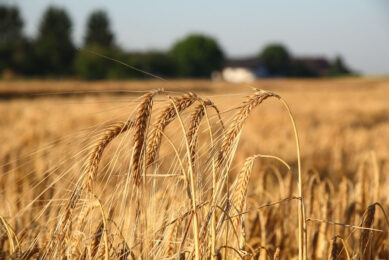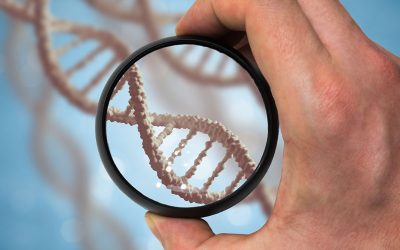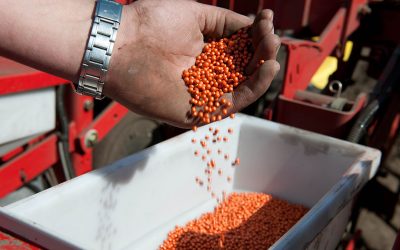Going Organic is a dead-end street
There are some who would have to you believe that to stop global warming we all need to go organic or stop eating animal products. The fact that 85% more land is needed and 25% extra energy for organic production doesn’t seem to matter.
The 7th of July was a very special day as it was dedicated to "Live Earth" day. Instigated by former US vice-president and now global warming activist Al Gore, apparently more than two billion people viewed the performance of hundreds of singers and music bands on stages all over the world.
The basic idea was to create awareness among the general public on global warming and what you as an individual can do about it. I watched a great deal of the day and enjoyed the music.
I also watched the video clips that were broadcasted during the breaks and I was a bit amazed on how biased these were. Apparently the solution for stopping global warming is either to go organic or to stop eating animal products. According to some analysts, animals contribute more to global warming than passenger vehicles do. This because of the feed they eat and the gas and manure they produce. (Some years ago New Zealand wanted to install a "fart-tax" to reduce methane production by ruminants).
Organic is a dead end street
The animal industry is aware of their impact on global warming and has begun paying much more attention to the sustainability of feed production. However, going organic is not the right solution. The fact that 85% more land is needed to produce the same amount of organic as ordinary food, while 25% more energy may be needed as well, makes it an unrealistic option.
The animal industry is aware of their impact on global warming and has begun paying much more attention to the sustainability of feed production. However, going organic is not the right solution. The fact that 85% more land is needed to produce the same amount of organic as ordinary food, while 25% more energy may be needed as well, makes it an unrealistic option.
If you read the article "Organic farming can feed the world" it makes you believe that organic is even better than current agricultural practices. Why isn’t it practised then? What the scientist do not calculate is that if we want to keep the same food supply but produce it organic, all animals have to roam outside. Just think of the land that is needed for that. Or do they all want us to become vegetarians?
Politics and food safety issues also hamper sustainable feed (and food) production. Feeding animal based proteins to other animals has been severely restricted in Europe; there is really no alternative to soy there. Much of the soy produced in Latin America (the main supplier) is GMO soy, but it is difficult to see how GMO’s can be reconciled with sustainability. There seems to be something of a contradiction there.
On the other hand many consumers in the EU (and this is an increasing trend) buy products containing GMO ingredients, largely because they cost less than those that do not. In the end consumers will have to decide how far they are prepared to go regarding the matter of GMO’s and not the politicians or the action groups. In the long term consumers are better off with unbiased scientific information.











